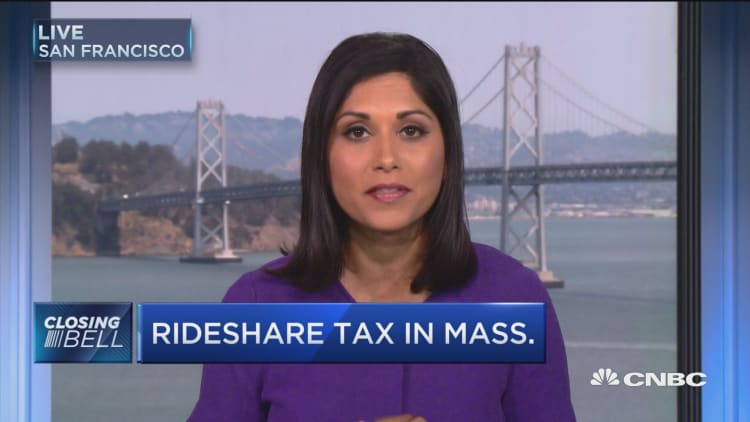Uber and Lyft are battling cities over fingerprinting drivers, saying it does nothing to improve safety and is an unnecessary burden — however, new data that came out Tuesday from Austin, Texas, a city both services quit over the issue, might undermine their case.
Austin's new fingerprint-based background checks, which went partially into effect on Aug. 1, barred 86 people with criminal records from driving for ride-hailing services, according to the Austin Transportation Department. Disqualifying offenses may include violent crimes, drug dealing, DUI, prostitution, fraud, resisting arrest, reckless driving, arson and theft.
There is no way of knowing if Uber and Lyft's own background checks — administered by Checkr and Sterling Backcheck — would have flagged these individuals. Uber and Lyft have said that the laws governing traditional taxi and limousine drivers should not be applied to their drivers, many of whom work part time.
Both Uber and Lyft closed up their Austin businesses in May when the city voted to require drivers to be fingerprinted. Both companies are fighting similar regulatory demands in cities such as Houston and Chicago.
"We remain optimistic that we can work with the Mayor and City Council to develop similar TNC regulations to those that have already been adopted by 13 Texas cities and 34 states across the country," an Uber spokeswoman said. (Lyft declined to comment.)
Uber, for one, also believes its background checks are stronger than those required by the city. The company rejected about a third of city-permitted chauffeur drivers who failed its own background check, a memo the company sent to the Mayor's office last October revealed.
Regardless, Austin is plowing ahead with fingerprinting. Not all drivers are required to be fingerprinted today, though. Among the eight ride-hailing licensed companies currently operating, an average of 74 percent of hours and 77 percent of miles were driven by fingerprinted drivers. Companies have until Feb. 1 to bring 99 percent of their driver hours or miles into full compliance.



